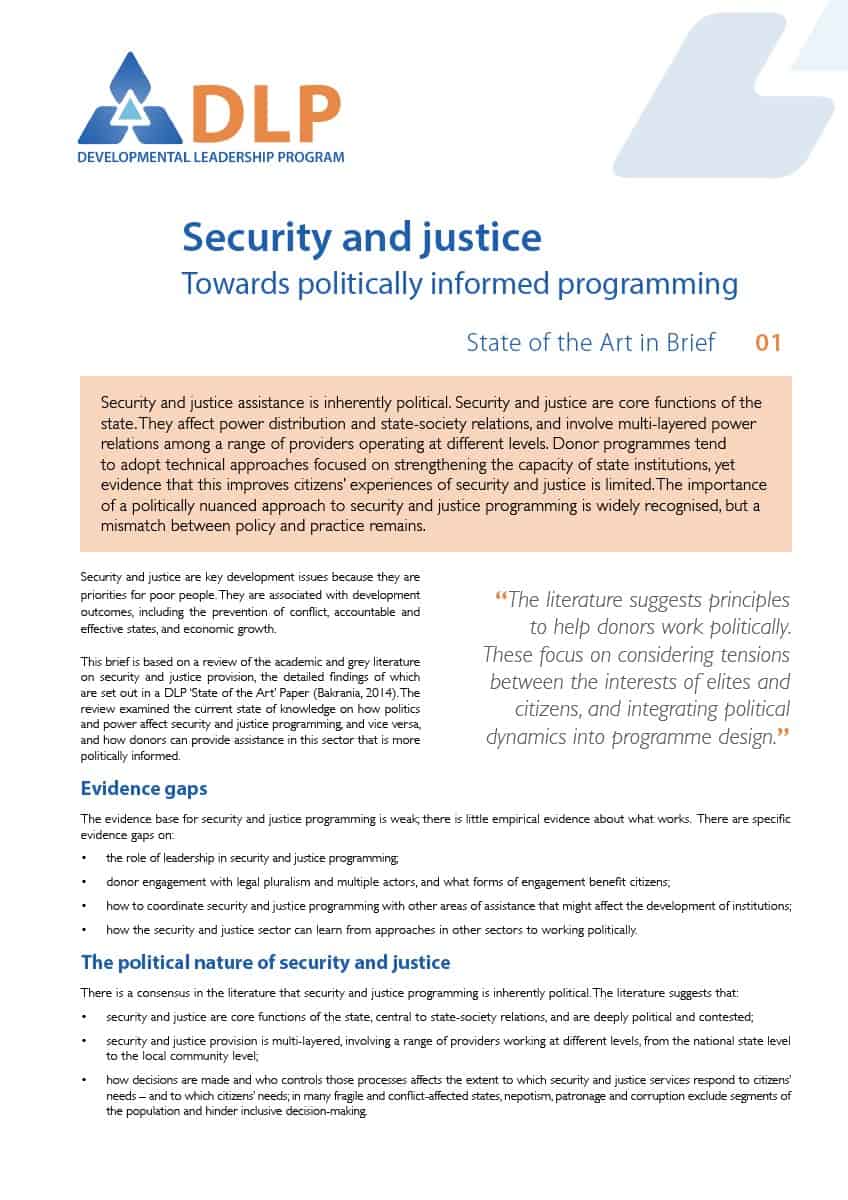Security and justice assistance is inherently political. Security and justice are core functions of the state. They affect power distribution and state-society relations, and involve multi-layered power relations among a range of providers operating at different levels. Donor programmes tend to adopt technical approaches focused on strengthening the capacity of state institutions, yet evidence that this improves citizens’ experiences of security and justice is limited. The importance of a politically nuanced approach to security and justice programming is widely recognised, but a mismatch between policy and practice remains.
This brief, by Shivit Bakrania, is based on a review of the academic and grey literature on security and justice provision, the detailed findings of which are set out in a DLP ‘State of the Art’ Paper (Bakrania, 2014). The review examined the current state of knowledge on how politics and power affect security and justice programming, and vice versa, and how donors can provide assistance in this sector that is more politically informed.









